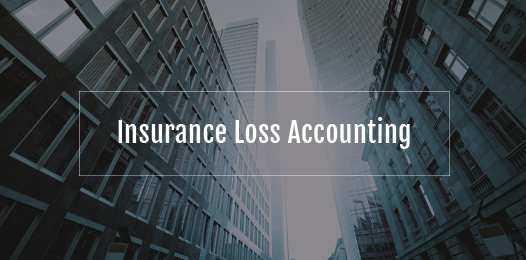Q&A with John Ganss, CPA, Senior Vice President at Lowers Forensics International
John Ganss, CPA, is a senior vice president at Lowers Forensics International and has focused his 30-year career in forensic accounting primarily on first party property/casualty insurance claims or third-party liability claims. He helps insurance companies measure losses and resolve claims quickly and fairly. We sat down for a Q&A with John to learn more about his work in property/casualty insurance losses.
Q. What does a typical claim review process entail?
A. Our process usually starts with speaking to the insurance adjusters or attorneys (if claim has moved to Alternate Dispute Resolution (ADR) or litigation) that we are working with to understand the circumstances of the claim. We then contact the insured (if not in litigation) and advise them that we’ve been retained by the insurance company to assess and evaluate their claim. I will normally explain that we are an independent firm and are solely interested in determining the most accurate measurement of the claim exposure as possible. I will usually ask the insured the exact same questions that I asked the adjuster, such as, what happened? How were you affected? How long were you affected? What types of records are available to assist us in calculating the financial impact? Are there any records that you have that you believe will assist us in analyzing your claim? I try to be upfront, open and transparent in what we’re trying to accomplish.
Q. What is a common misconception about the process?
A. The most common misconception among insureds relates to what their insurance policy covers. A lot of times people think they’re insured for revenue losses, but they might not think about the expenses they’re not incurring when not operating. We help them understand this by explaining the expenses that may abate and how these expenses affect their financial impact. And we’ll also ask the insured about what factors they believe might need to be considered. Our goal here is to be helpful in explaining the process, and we want the insured to be confident that we are here to get to the right answer.
Q. Are there differences in what an attorney looks at compared to what the insurer looks at?
A. Insurers want us to measure the loss as close to the policy wording as possible, and while an attorney wants this as well, I have found that the attorneys are also keenly interested in any issues that might come into play during a trial or negotiation. Attorneys quite often present a variety of “what ifs.” Such as, what if their attorney asks this or that? How are you going to respond if you’re asked a question you weren’t anticipating? From the attorney’s perspective, we are assisting them with the “what ifs” in preparation for ADR proceedings or trial, anticipating the other sides responses, and what could theoretically come up during the resolution process.
Q. What are some of the keys to success as a financial forensics professional focused on insurance loss accounting?
A. First and foremost, I would say it’s about anticipating any potential issues, knowing your subject inside and out, and top to bottom. Being prepared for all variations of a potential question. Knowing how to avoid getting led down a road you shouldn’t travel, such as getting into issues that are not directly correlated. Being thoughtful and methodical in your analyses and questions of the insured. Making sure you understand how the claim was prepared, and understanding the calculated amount that you have determined.
Some common pitfalls include failing to understand what various production rates represent, not taking into consideration seasonality, normal down time or planned maintenance. For example, in a steel mill you could select a base period that has a bunch of scheduled or unscheduled down time, but you must make sure you’re predicting what would have happened if there hadn’t been a loss.
At the end of the day, the goal is to get a claim settled and the more information both sides share, and understand, the closer we are to being able to present the right answer, and get a loss settled.
John Ganss and the Lowers Forensics International team are here to help you get to the truth behind the numbers. Contact us to discuss your needs.
